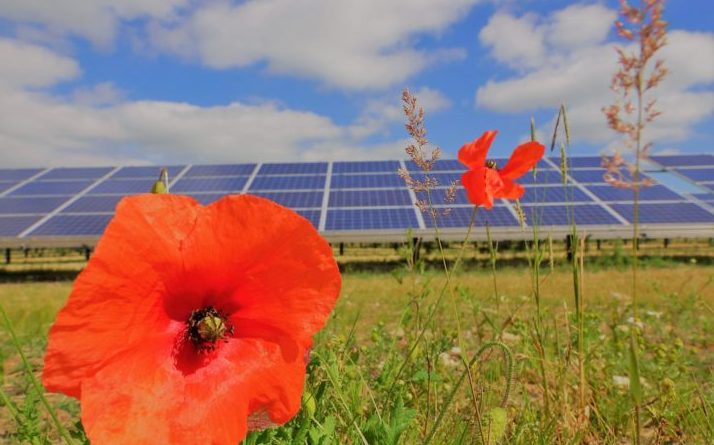Benefits of Switching to Renewable Energy
Photo by Solar Trade Association/CC BY-SA 2.0
Article by: Elizabeth Perle
Scientists predict global carbon dioxide emissions will increase 43 percent by 2035 (2). The time to take steps to reduce our carbon footprint is now, and the benefits of renewable energy sources are breathtaking.
Renewable energy is created by harnessing and replenishing the earth’s natural resources. These resources—such as wind and solar energy—are constantly replenished and will never run out. The advantages and disadvantages of renewables do exist, however the advantages far outweigh the disadvantages.
Renewable energy is Eco-friendly.
Renewable power is a clean energy source, thus they have low or zero carbon and greenhouse emission. Fossil fuels emit high levels of greenhouse gas and carbon dioxide, which are greatly responsible for global warming, climate change, and reduced air quality. The use of renewable energy dramatically reduces the dependence on fossil fuel as a source of energy, cutting back on air pollution and carbon emissions.
Renewable energy provides affordable electricity and helps stabilize energy prices.
The cost of renewable energy has declined and will continue to do so as markets grow and companies continue to invest in green energy solutions. In fact, the average price of a solar panel has dropped almost 60 percent since 2011 (1). The cost of generating electricity from wind dropped more than 20 percent between 2010 and 2012 and more than 80 percent since 1980 (1). In areas with strong wind resources, wind power can compete directly with the cost of fossil fuels. An increased reliance on renewable energy can help protect consumers when fossil fuel prices spike.
It’s a renewable resource.
This implies that they do not deplete over a lifetime and there is zero possibility that they will run out (5). Fossil fuels are considered limited resources because there is strong possibility that they will run out in the future. Winds, solar and water can guarantee a sufficient and steady global energy supply.
Renewable energy is a reliable source of energy.
Renewable energy sources are more resilient than coal, natural gas, and nuclear power plants when faced with extreme weather conditions. Wind and solar are less likely to fail during extreme weather events because they use distributed systems. This means they are spread out over a large geographical area, so a severe weather event in one location will not cut off power to an entire region. Even if some of the equipment in the system is damaged, the rest can continue to operate (4).
It leads to job creation.
Renewable energy makes economic sense because it is a cheaper alternative to traditional energy sources. Since the inception of renewable energy, new and stable jobs have been added to most world economies. Experts project that with ongoing rigorous campaigns to embrace renewable energy, thousands of stable jobs will be created. In fact, the renewable energy sector produced 8.1 million jobs world wide in 2015 (3).
They boost public health.
Generating power from renewable energy rather than fossil fuels offers significant public health benefits. Air and water pollution emitted by coal and natural gas plants is linked to respiratory problems, neurological damage, heart conditions and cancer. The national economic impact associated with health impacts from fossil fuels is between $361.7 and $886.5 billion (1).
Switching to renewable energy will reduce energy expenditures required for economic production. The world will have a more stable climate. And we will see reduced health and environmental impacts from carbon heavy energy emitters. For these reasons, the United States should focus on a renewable energy future.
References
- “Benefits of Renewable Energy Use.” Union of Concerned Scientists. N.p., n.d. Web. 02 Feb. 2017.
- Kirkland, Joel, and Climatewire. “Global Emissions Predicted to Grow through 2035.” Scientific American. N.p., 26 May 2010. Web. 02 Feb. 2017.
- “Publications.” IRENA | Publications | Reports and Papers | Renewable Energy and Jobs – Annual Review 2016. N.p., n.d. Web. 02 Feb. 2017.
- “Renewable Energy: All You Need to Know.” Introduction to Renewable Energy | EnvironmentalScience.org. N.p., n.d. Web. 02 Feb. 2017.
- “Advantages and Disadvantages of Renewable Energy.” Conserve Energy Future. N.p., 15 Jan. 2017. Web. 02 Feb. 2017.
- “U.S. Energy Information Administration – EIA – Independent Statistics and Analysis.” U.S. Energy Information Administration (EIA) – Report. N.p., n.d. Web. 02 Feb. 2017.

